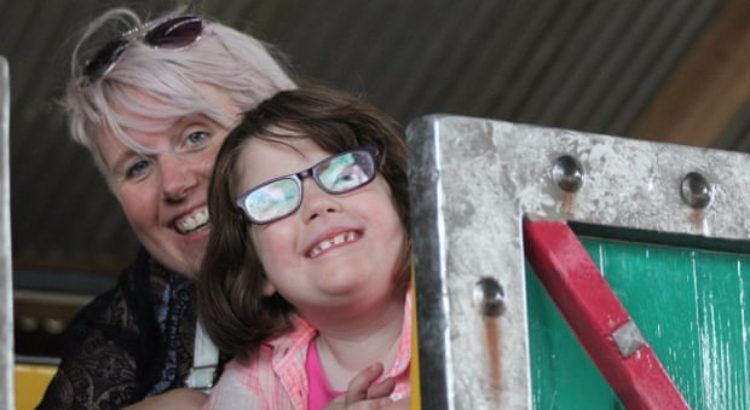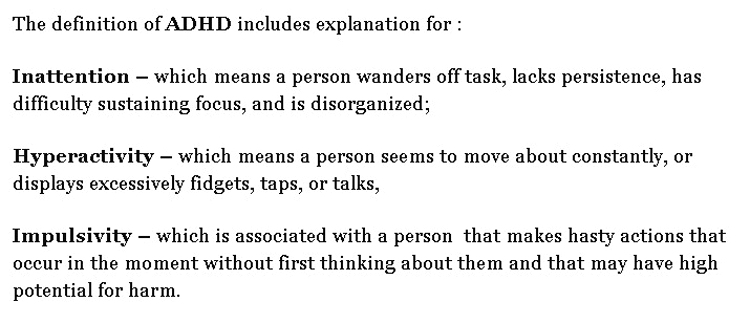By: Michael Savage.
As council budgets are slashed, desperate parents speak about their exhausting battle in the courts to protect the forgotten victims – their children
As a former bouncer working in north London nightclubs, John Roden thought he knew a thing or two about stressful situations. But taking on the care of his five-year-old granddaughter Hope brought his greatest confrontation. Hope is disabled, and her rare condition means she cannot walk unaided and communicates using a form of sign language.
“Caring for Hope is stressful at the best of times,” says Roden, one of a group of carers to launch a legal challenge heard in court last month against proposed cuts to special educational needs funding in Hackney, east London. “Hope came to me when I was 57. I’m 62 this year. All this is heaping a lot more pressure on us. It grinds you down. There’s so much going through my head that I’ve been forgetting simple things. You spread yourself thin and something has to give. But we can do it.”
When the council announced proposals that could cut spending by more than £300,000 over the next academic year, Roden was among those who agreed to take on the fight. Like many parents looking after a child with special educational needs and disabilities (SEND), Roden describes an exhausting fight to secure the best support.
Fellow Hackney campaigner Dana Thompson’s daughter, Sade, 16, has narcolepsy and cataplexy, conditions that can cause her to fall asleep suddenly, or collapse. Thompson’s application for support was rejected four times before she received help – a battle that lasted 10 years.
“I couldn’t live with myself knowing I didn’t try one last time,” she says. “Unfortunately, many children have fallen through the net. That affects mental and physical health. With Sade, it has affected her.”
As councils nationwide face budget pressures that threaten them with bankruptcy, some are having to consider cuts to SEND funding that they would never have contemplated just a few years ago. Yet their desperation to balance the books has run up against the desperation of parents determined to secure support for their children. The clash is now being played out in court actions across England.
Alicia McColl is among the parents taking action against Surrey county council’s proposal for a £21m cut in its SEND budget. She has been battling for the right support for her 14-year-old son Kian, who has autism, hypermobility, dyspraxia and attention deficit hyperactivity disorder. After years of campaigning, she is aware of the toll on her family. “All my money and inheritance went on my son’s education – on the battle,” she says. “The people who have missed out the most are my other two children. I try to make up for it now, but my eldest son is an adult and he missed out on a lot of my time. The impact is massive.”
Hopes have been raised by the success of a case in Bristol in the summer, in which a judge ruled that the council had unlawfully cut its SEND budget by £5m. Other campaigns are being drawn up in areas including Portsmouth, Gloucestershire and Sussex.
Hackney councillor Chris Kennedy insists everyone is “on the same side”, but adds that the court case “doesn’t address the fundamental issues that have led to councils up and down the country facing bankruptcy in their efforts to fund one of the most important services they provide”. Surrey county council said it was facing “huge financial pressure” and that it was wrong to describe the £21m saving as a cut “because we haven’t made or even proposed cuts to services”.
So what is causing the system to creak? The trouble, according to experts and council insiders, is that funding cuts have combined with recent education reforms to create a system loaded against councils – forcing them into cuts and legal battles with parents.
They point to 2014 changes designed to give “greater control and choice” to parents, which raised expectations about the support available and increased the legal responsibilities of councils. However, the new system was not matched with the necessary funding. With schools also under pressure to keep costs down and improve results, some are finding ways of removing SEND pupils from their rolls, or not accepting them in the first place.
That often leads to even higher costs for councils. Parents realised that some kind of national action was needed. A legal case has been launched against the government, with campaigners arguing that it is simply not providing sufficient funding. Among the parents in the group is Lorraine Heugh, who has faced cuts in funding for the care given to her son Nico, 15, who has autism and anxiety. “We had to go down the legal road and in the end they did supply the funding,” she says. “It didn’t stop there. The following September we had the same problem again. Now we’re in a situation where they have given a little bit of funding, but cut by half.
“The people who get forgotten are the children. For children like my son, when their needs are not met at school, it has a knock-on impact on them. It leads to children having breakdowns – why would you allow a child to go through that?”
Kirsty McFinnigan, from North Yorkshire, got involved through social media. After fighting for resources for her son Benedict, 14, she joined the legal battle out of “sheer and utter desperation”. “There’s too many people in this position,” she says. “My son is 14. I’m going to ultimately have to answer to him about why he didn’t get an education, so at least I can say I did everything I could.”
For Mary Riddell, who has fought her council in Birmingham over the support given to her nine-year-old daughter Dakota, it is simply about trying to be heard.
“We’ve had to fight every step of the way,” she says. “It is hard to watch your child struggle and all you can do is chase the people who are meant to be helping you – and knowing their hands are tied.
“I’m not holding out any hopes that they will instantly say, ‘here’s lots and lots of money’. But I would like them to take notice and understand what kind of effect these cuts are having.”
Source of the article: https://www.theguardian.com/education/2018/nov/10/its-hard-to-watch-your-child-struggle-all-you-can-do-is-chase-people









 Users Today : 30
Users Today : 30 Total Users : 35460047
Total Users : 35460047 Views Today : 43
Views Today : 43 Total views : 3418674
Total views : 3418674